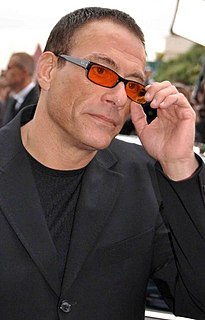A Quote by J. G. Holland
There is nothing more precious to a man than his will; there is nothing which he relinquishes with so much reluctance.
Related Quotes
I learned that it is better, a thousandfold , for a proud man to fall and be humbled, than to hold up his head in his pride and fancied innocence. I learned that he that will be a hero, will barely be a man; that he that will be nothing but a doer of his work, is sure of his manhood. In nothing was my ideal lowered, or dimmed, or grown less precious; I only saw it too plainly, to set myself for a moment beside it.
It is rare to find a man who believes in his own thoughts or speaks that which he is created to say. As nothing astonishes men so much as common sense and plain dealing, so nothing is more rare in any man than an act of his own...feel yourself, and be not daunted by things...The light by which we see this world comes out from the soul of the observer.
Some of us need to discover that we will not begin to live more fully until we have the courage to do and see and taste and experience much less than usual... And for a man who has let himself be drawn completely out of himself by his activity, nothing is more difficult than to sit still and rest, doing nothing at all. The very act of resting is the hardest and most courageous act he can perform.
It hath been said, that there is of nothing so much in hell as of self-will. The which is true, for there is nothing else there than self-will, and if there were no self-will, there would be no Devil and no hell. When it is said that Lucifer fell from Heaven, and turned away from God and the like, it meaneth nothing else than that he would have his own will, and would not be at one with the Eternal Will. So was it likewise with Adam in Paradise. And when we say Self-will, we mean, to will otherwise than as the One and Eternal Will of God willeth.
The faithful man perceives nothing less than opportunity in difficulties. Flowing through his spine, faith and courage work together: Such a man does not fear losing his life, thus he will risk losing it at times in order to empower it. By this he actually values his life more than the man who fears losing his life. It is much like leaping from a window in order to avoid a fire yet in that most crucial moment knowing that God will appear to catch you.
Habit is the enormous flywheel of society, its most precious conservative agent. There is no more miserable human being than one in whom nothing is habitual but indecision. Full half the time of such a man goes to the deciding, or regretting, of matters which ought to be so ingrained in him as practically not to exist for his consciousness at all.
In the world it is called Tolerance, but in hell it is called Despair...the sin that believes in nothing, cares for nothing, seeks to know nothing, interferes with nothing, enjoys nothing, hates nothing, finds purpose in nothing, lives for nothing, and remains alive because there is nothing for which it will die.






































